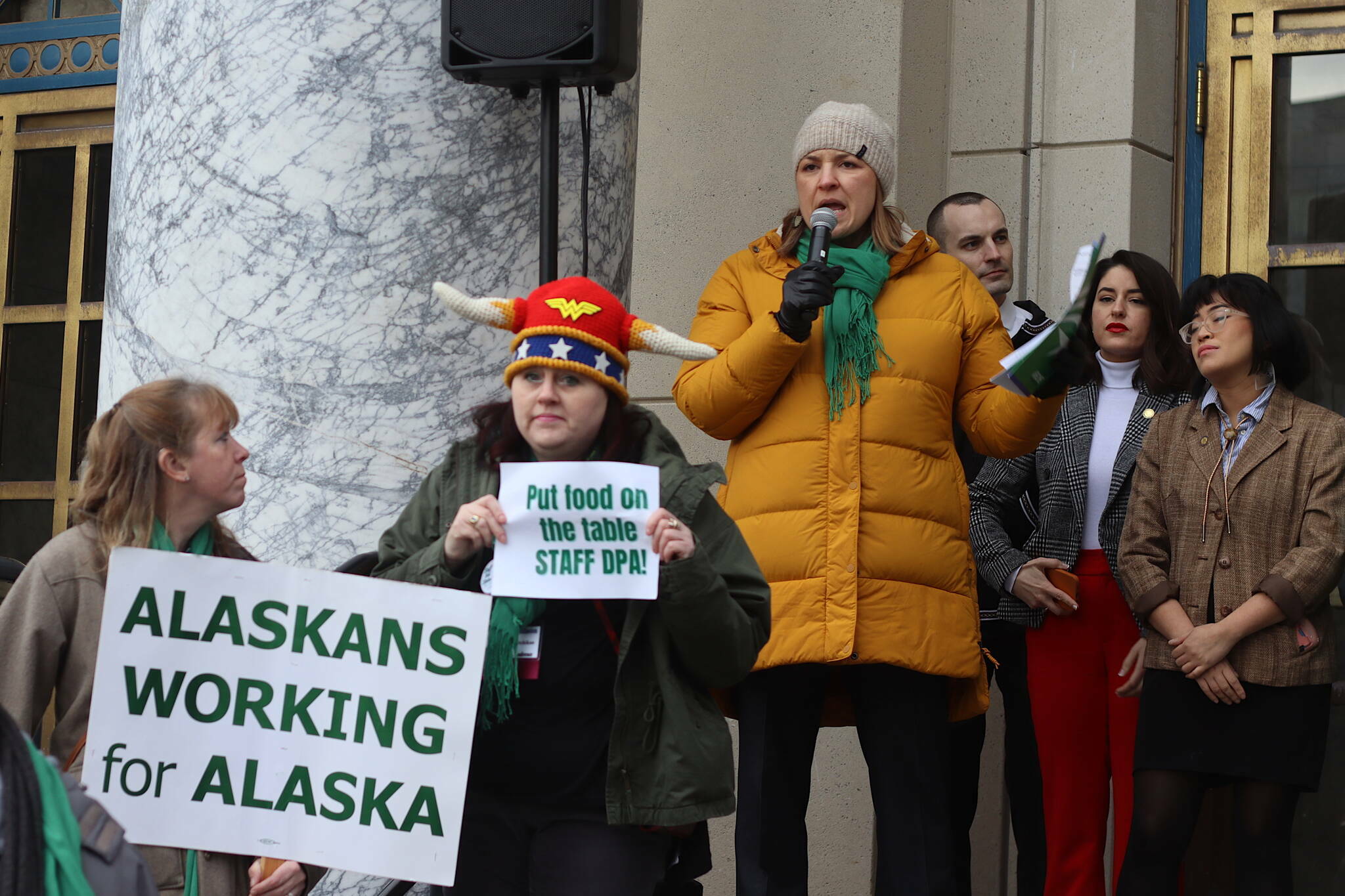The state of Alaska is asking the U.S. Supreme Court to overturn an Alaska Supreme Court ruling in May that the Dunleavy administration acted illegally by unilaterally changing union dues rules for state employees, according to a petition filed with the high court on Wednesday.
The appeal to the U.S. Supreme Court is based on “whether the First Amendment prohibits a state from taking money from employees’ paychecks to subsidize union speech when the state lacks sufficient evidence that the employees knowingly and voluntarily waived their First Amendment rights,” according to the petition.
The challenge comes three months after the state supreme court awarded the Alaska State Employees Association nearly $450,000 in damages, legal fees and interest for its lawsuit against Gov. Mike Dunleavy, a Republican, and officials in his administration. The lawsuit was prompted by a 2019 executive order by Dunleavy requiring employees to opt into union membership via a form filed annually with the state. That prevented the union from automatically collecting dues from paychecks of its roughly 8,000 member employees.
Dunleavy’s order was based on a 2018 U.S. Supreme Court decision — generally known as the Janus case — that government employees can’t be forced to contribute to labor unions representing them in collective bargaining. ASEA successfully argued the decision applied only to non-union workers required to pay fees to unions, but attorneys for the Dunleavy administration argued Janis also covers union members by implication.
“The Court should hear this case because the Alaska Supreme Court has ‘decided an important question of federal law’ in a way that violates the First Amendment and ‘relevant decisions of this Court.’” the state’s petition asserts. “Despite Janus, states across the country are failing to protect the First Amendment rights of their employees. The Court has not hesitated to grant certiorari in similar circumstances.”
Heidi Drygas, the ASEA’s executive director, called the petition “wasteful political theater and the continuation of a culture war on state workers and Alaskans who rely on the services they provide.”
“This administration’s record is one of privatizing services, outsourcing jobs to other states, furloughing employees, and chronic understaffing among many other anti-worker policies,” she said in a prepared statement. “Unions exist to give individual workers the standing to negotiate with an employer. Attacking unions is attacking working people and working families. It is a sad state of affairs for the governor to interfere with public employees’ voluntary choices to join and support unions under the pretext of protecting workers’ interests.”
Drygas said the First Amendment arguments presented by the administration are hypocritical.
“Gov. Dunleavy began his tenure by imposing a loyalty oath upon state employees, then expressed an alleged free speech concern for state employees who had already exercised their free speech rights by voluntarily choosing to be union members,” she said. “These cynical political maneuvers have resulted in lawsuits ending in scathing rulings against the governor by Alaska courts at great expense to the state.”
Jessie Alloway, the state’s solicitor general for civil appeals, said in an interview Wednesday the petition was filed this week because the state has 90 days from the state Supreme Court’s ruling to file an appeal with the U.S. Supreme Court.
“We just use that entire 90 days (since) there’s an internal evaluation within the state to see whether we want to appeal and then it takes time to file those things,” she said.
The state’s petition — along with prepared statements by Dunleavy and Alaska Attorney General Treg Taylor — casts the appeal to the U.S. Supreme Court as an issue affecting multiple states.
“The promise of Janus is unfulfilled,” Taylor said in a press release issued Wednesday. “States across the country, including our own, continue to deduct money from the paychecks of state employees without clear and compelling evidence demonstrating the employees’ knowing consent. This needs to change, and we need the highest court in the country to step in.”
• Contact Mark Sabbatini at mark.sabbatini@juneauempire.com or (907) 957-2306.

